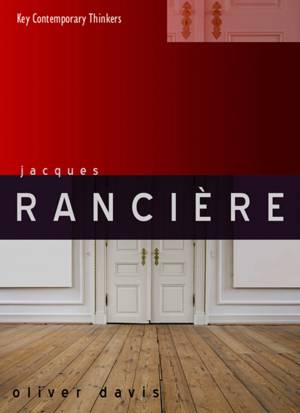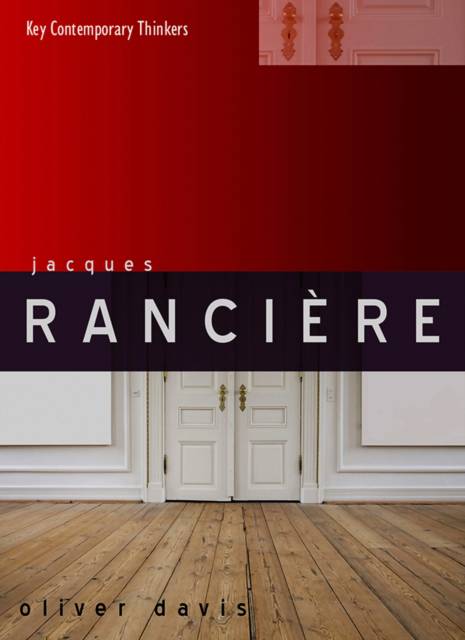
- Afhalen na 1 uur in een winkel met voorraad
- Gratis thuislevering in België vanaf € 30
- Ruim aanbod met 7 miljoen producten
- Afhalen na 1 uur in een winkel met voorraad
- Gratis thuislevering in België vanaf € 30
- Ruim aanbod met 7 miljoen producten
Zoeken
Omschrijving
This book is a critical introduction to contemporary French philosopher Jacques Rancière. It is the first introduction in any language to cover all of his major work and offers an accessible presentation and searching evaluation of his significant contributions to the fields of politics, pedagogy, history, literature, film theory and aesthetics.
This book traces the emergence of Rancière's thought over the last forty-five years and situates it in the diverse intellectual contexts in which it intervenes. Beginning with his egalitarian critique of his former teacher Louis Althusser, the book tracks the subsequent elaboration of Rancière's highly original conception of equality. This approach reveals that a grasp of his early archival and historiographical work is vital for a full understanding both of his later politics and his ongoing investigation of art and aesthetics.
Along the way, this book explains and analyses key terms in Rancière's very distinctive philosophical lexicon, including the 'police' order, 'disagreement', 'political subjectivation', 'literarity', the 'part which has no part', the 'regimes of art' and 'the distribution of the sensory'.
This book argues that Rancière's work sets a new standard in contestatory critique and concludes by reflecting on the philosophical and policy implications of his singular project.
This book traces the emergence of Rancière's thought over the last forty-five years and situates it in the diverse intellectual contexts in which it intervenes. Beginning with his egalitarian critique of his former teacher Louis Althusser, the book tracks the subsequent elaboration of Rancière's highly original conception of equality. This approach reveals that a grasp of his early archival and historiographical work is vital for a full understanding both of his later politics and his ongoing investigation of art and aesthetics.
Along the way, this book explains and analyses key terms in Rancière's very distinctive philosophical lexicon, including the 'police' order, 'disagreement', 'political subjectivation', 'literarity', the 'part which has no part', the 'regimes of art' and 'the distribution of the sensory'.
This book argues that Rancière's work sets a new standard in contestatory critique and concludes by reflecting on the philosophical and policy implications of his singular project.
Specificaties
Betrokkenen
- Auteur(s):
- Uitgeverij:
Inhoud
- Aantal bladzijden:
- 224
- Taal:
- Engels
- Reeks:
Eigenschappen
- Productcode (EAN):
- 9780745646558
- Verschijningsdatum:
- 11/10/2010
- Uitvoering:
- Paperback
- Formaat:
- Trade paperback (VS)
- Afmetingen:
- 150 mm x 224 mm
- Gewicht:
- 317 g

Alleen bij Standaard Boekhandel
+ 85 punten op je klantenkaart van Standaard Boekhandel
Beoordelingen
We publiceren alleen reviews die voldoen aan de voorwaarden voor reviews. Bekijk onze voorwaarden voor reviews.











